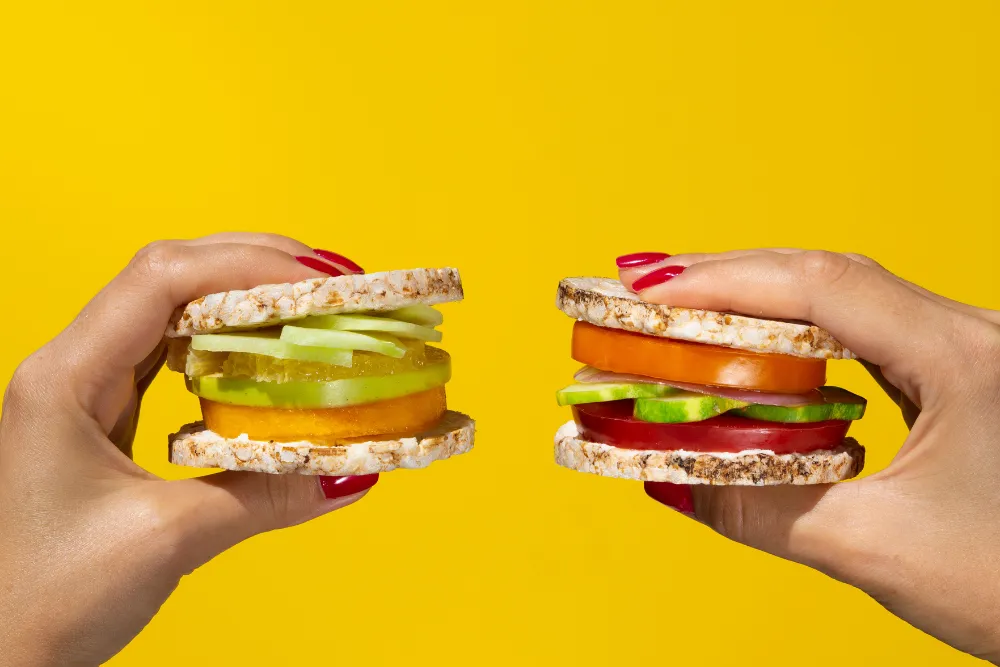People who love fast food love the McDouble because it fills them up and doesn’t cost too much. Two beef patties, a slice of American cheese, tangy pickles, chopped onions, ketchup, and mustard are all tucked inside a soft bun It tastes good and doesn’t cost too much, but what about its health effects? If you like McDonald’s but also care about your health, you need to know about mcdouble nutrition.
This article goes into great detail about what you need to know about mcdouble nutrition, such as how many calories it has, what macronutrients it has, what ingredients it has, how it affects your diet, and how it fits into different lifestyles.
Learning the Basics of McDouble Nutrition

The McDouble looks like a small meal choice at first glance. It’s not as big as the Big Mac or the Quarter Pounder, but it has more meat than a regular cheeseburger. People like it because of that balance, which is also why so many people look up mcdouble nutrition facts.
Based on official McDonald’s data, here is the standard nutrition profile for a mcdouble:
- About 400 calories
- Total Fat: 20 grams
- Saturated fat: 9 grams
- Cholesterol: 70 mg
- Sodium: 920 mg
- 33 grams of carbs
- Fiber in food: 2 grams
- 7 grams of sugar
- 22 grams of protein
These numbers may seem simple, but they can help you understand how this sandwich fits into your daily diet.
What do you get for 400 calories?

Calories are the most important part of mcdouble nutrition. With about 400 calories per sandwich, the McDouble is a middle-of-the-road fast food meal. That’s about 20% of your daily intake for someone who eats 2,000 calories a day.
The McDouble has a good mix of carbs, fats, and proteins that can make you feel full, but it’s not always “light.” If you add fries and a drink, your meal will have more than 1,000 calories. This makes it very important to know about the nutrition of a McDouble in order to plan meals and control portions.
The McDouble’s main ingredient is protein.

The protein content is one of the best things about mcdouble nutrition. The McDouble has about 22 grams of protein, which can help you feel full longer. This makes it a good choice for people who want to control their appetite or help their muscles heal after working out.
Protein is important for every part of your body, from building muscle to helping your metabolism. The cheese slice and the beef patties add protein, but they also add some saturated fat.
Fats: A Sword with Two Edges
The McDouble has about 20 grams of total fat, including 9 grams of saturated fat. This means that the mcdouble is a little more fat in it than other foods.
Fat by alone isn’t bad for you your body needs it to make hormones and keep your brain healthy. But too much saturated fat can lead to heart disease and cholesterol problems over time. If you’re watching how much fat you eat, it’s best to eat the McDouble in small amounts.
Sugar and Carbs
The bun and the condiments make up most of the mcdouble’s nutrition, which is 33 grams of carbs. Seven grams of those are sugars, and most of them come from ketchup. It also has a little bit of fiber (2 grams), which could be better, but fast food isn’t known for being high in fiber.
If you’re on a low-carb diet like keto, the McDouble might not fit your macros unless you take off the bun or ask for it “protein style.” For people on certain diets, knowing how many carbs are in a McDouble is an important part of figuring out how to eat it.
Sodium: A Salty Surprise
Sodium may be the most important number in mcdouble nutrition. It makes up about 40% of the recommended daily intake (2,300 mg) at about 920 mg. That’s a lot for one item, especially since most people don’t eat just one sandwich.
Too much sodium can make your blood pressure go up and make you hold on to water. If you’re trying to cut back on salt, remember that the McDouble isn’t a low-sodium food. Adding salty sides like fries can quickly put you over your daily limit.
What Are the Ingredients in McDouble Nutrition?
Let’s look at the main parts that make up mcdouble nutrition:
- Beef patties are where most of the calories, protein, saturated fat, and cholesterol come from.
- Cheese: Adds creaminess and taste, and it also raises the levels of fat, sodium, and calcium.
- Bun: gives you carbs, a little bit of fiber, and sodium.
- Condiments like ketchup, mustard, pickles, and onions add flavor and a little sugar, sodium, and nutrients.
Each of these ingredients adds something to the mcdouble nutrition, both good and bad.
How does McDouble Nutrition stack up against other menu items?

Let’s compare the nutrition of the McDouble to that of other McDonald’s classics:
| Item | Calories | Protein | Fat | Sodium |
|---|---|---|---|---|
| McDouble | ~400 | 22g | 20g | 920mg |
| Cheeseburger | ~300 | 15g | 12g | 720mg |
| McChicken | ~400 | 14g | 21g | 560mg |
| Big Mac | ~550 | 25g | 30g | 1010mg |
The McDouble has more protein than both the Cheeseburger and the McChicken, which makes it more nutritious than the McChicken.
Making the McDouble healthier by changing it
There are ways to change the McDouble so that it fits your diet better. Changing the nutrition of a McDouble doesn’t always mean giving it up. Here are some ways to change it:
- No cheese: this cuts about 50 calories and 3.5 grams of fat.
- No Ketchup: This lowers sugar and a little sodium.
- Add lettuce or tomato for extra fiber and vitamins.
- No Bun or Bun Removal: This cuts down on carbs for people who eat low-carb.
People often forget about custom orders, but they can have a big effect on the overall nutrition profile of the mcdouble.
Is it good for you to eat McDouble?
It all depends on what you mean by “healthy.” In some situations, mcdouble nutrition is surprisingly good. You get a lot of protein, not too many calories, and a feeling of fullness, all for a low price. But if you have to watch your sodium, saturated fat, or cholesterol intake, the McDouble might not be the best choice for a regular meal.
If you think about food in terms of balance and how often you eat it, an occasional McDouble can definitely fit into a healthy lifestyle.
Who Needs to Know About McDouble Nutrition?
Many groups can benefit from knowing about mcdouble nutrition:
- People who are watching their calories: It helps them plan meals and keep track of how much they eat.
- People who play sports or go to the gym: It has a good protein-to-calorie ratio, which makes it a good choice.
- People with high blood pressure should cut back on sodium.
- If you’re on a low-carb or keto diet, you might want to get rid of the bun but keep the beef and cheese.
- Professionals who are busy want meals that are quick, filling, cheap, and good for their health.
When you know the nutrition facts about McDouble, you can make choices that help you reach your own dietary goals.
How to Include McDouble in a Healthy Diet
The problem isn’t eating a McDouble; it’s how often and what you eat with it. To keep your mcdouble nutrition in check throughout the day:
- Instead of fries, have a side salad or fruit cup with it.
- Instead of soda, drink water or iced tea without sugar.
- Don’t add too much salt or saturated fat to your other meals that day.
- Don’t eat too much—only one burger, not two.
These small changes can make a fast-food meal a reasonable option in a larger healthy eating plan.
FAQS
2. What happens to cholesterol levels when you eat a McDouble?
Frequent eating may raise LDL cholesterol because it has 70 mg of cholesterol and 9 g of saturated fat. People with heart problems should eat less or choose leaner lower-fat menu options.
3. Is it okay to eat the McDouble after working out?
Yes, it has 22 grams of protein, which is good for muscle recovery, but the high sodium and fat levels might not be the best. It's better to balance it with vegetables or a protein shake.
4. Is the McDouble free of gluten?
The bun in the McDouble is not gluten-free. If you have celiac disease or are sensitive to gluten, you should stay away from it or ask for a version without a bun. However cross-contamination can still happen in fast-food kitchens.
5. Does the McDouble have any vitamins or minerals in it?
It also has small amounts of calcium (from cheese), iron (from beef), and B vitamins. But compared to whole foods like fruits, vegetables, and lean meats, it doesn't have a lot of micronutrients.
Last Thoughts on the Nutrition of McDouble
The McDouble is more than just a cheap burger. It gives you protein, flavor, and satisfaction all in one small package.
Knowing how healthy mcdouble is lets you enjoy it on purpose. Knowing what’s in your food is always helpful, whether you’re counting calories, balancing macros or watching your sodium intake.
Eat smart, stay balanced, and remember that you don’t have to give up your favorite foods if you know how to include them in a healthy way.














